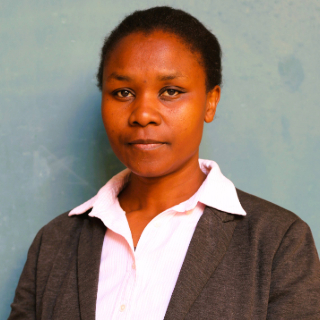EXAMINATIONS

BACKGROUND
The Examinations Section is one of the Units that fall under the Registrar's Department. Its responsibilities include the following amongst others:
- Examination scheduling – the office is responsible for the compilation and publication of examination timetables
- Manages examination logistics including examination venue allocation
- Training of university staff on exam procedures and policies
- Printing and secure storage of examination question papers
- Facilitates the appointment of external examiners
- Services the Termination of Studies (Appeals Committee) meetings
- Processes honorarium claims for external examiners as well as graduation prizes
- Provides support and guidance to students with exam-related queries
Timing of Examinations
Examinations shall normally be taken by students at the end of each appropriate semester. Second Semester Examinations are normally held in May/June and First Semester Examinations are normally held in November/December each year.
Examinations shall normally be held in the morning and afternoon sessions within the periods 9.00 am to 5.00 pm excluding weekends and public holidays.
Organization of Examinations
The organization and conduct of all examinations shall be the responsibility of the Examinations office.
In the organization of examinations, the Academic Departments shall be responsible for the following;
- Production of quality-assured Examination Question Papers
- On-time submission of examination Question Papers to the Examinations Office.
- Ensure the availability of the Examiner and Invigilator during an examination.
- Collection of answer scripts, marking, and initial processing of results.
- Timetabling of examinations that fall outside the university calendar dates.
- Quality control of examination Question Papers, including content and ensure adherence to professional standards.
The Examinations office shall be responsible for;
- Timetabling of examinations within the period set aside for main examinations as per the University calendar
- Publication of the timetable online for access by students in the student portal
- Allocation of examination venues
- Printing of examination Question Papers
- Secure storage of examination Question Papers.
- Provision of examination materials (for example answer books)
- Implementing examination timetable adjustments for students and teaching staff upon request based on a justifiable reason.
Examinations Timetable
- To support examination timetabling, the Examinations Office shall request from academic departments a summary of examination information confirming the courses and their codes, that would be examined at the scheduled examination session at the beginning of the Semester.
- All continuous assessments must be marked and made available to students before the commencement of the final examinations
- For examination timetabling reasons, all Sundays, Saturdays and public holidays shall be examination-free days.
- The Candidates must note carefully the dates, times, and venues for their Examinations as given in the Final Timetable. (Special care should be taken to ensure it is the Final Timetable and not a previous Draft.) The Candidates should be punctual.
- e) It is the Candidates’ responsibility to check the Timetable themselves and to ensure that they know the correct date, time, and Venue of each Examination.
- The misreading of a Timetable is not an acceptable excuse for missing an Examination.
- Any queries on the Timetable should be directed, in the first instance, to the appropriate Chairman of the Department.
Examinations Misconduct
The following shall constitute misconduct in an examination:
Taking or possessing, whilst in the examination room, any notes, books, bags, cellular phones, programmable calculator, or any material which has not been authorized;
The use of any answer book, writing, or blotting paper other than that supplied;
Aiding or attempting to aid, soliciting or attempting to solicit for aid from another candidate directly or indirectly;
Writing information or having written information, regardless of relevance, on any part of the candidate’s body during the examination;
Leaving the examination venue for any purpose without seeking permission from the Invigilator;
Any other behavior that, in the view of the Invigilators, is deemed to prejudice the performance of other candidates.
Alternative Arrangements Due to Other Commitments.
Alternative arrangements for sitting an examination at an alternative time or venue may be considered where the candidate is prevented from sitting the examination at the prescribed time and venue by:
- Competing or participating as a national representative or officiating at an international competition recognized by a fully constituted international governing body.
- Bereavement in the immediate family
- Serious illness or incapacity (candidate or immediate family member)
- A posting as a member of the armed forces, police, or a staff member of the Ministry of Foreign Affairs
Alternative arrangement due to Disability or Impairment
Alternative arrangements for sitting an examination may be considered for candidates with disabilities, impairments, medical conditions, or injuries and may include the following;
- Examination material in different formats
- Provision of a reader or verifier
- Permission to write an examination in an alternative venue
- Additional writing time (10 minutes per hour of examination time)
Timetable
1.1 The consolidated official Examination Timetables are posted on Departmental and Student Notice Boards.
1.2 The Candidates must note carefully the dates, times, and venues for their Examinations as given in the Final Timetable. (Special care should be taken to ensure it is the Final Timetable and not a previous Draft.) The Candidates should be punctual. The Examinations will not wait for latecomers.
1.3. It is the Candidates’ responsibility to check the Timetable themselves and to ensure that they know the correct date, time, and Venue of each Examination. They should not depend on information communicated by telephone.
1.4 misreading a Timetable is not an acceptable excuse for missing an Examination.
1.5 Any queries on the Timetable should be directed, in the first instance, to the appropriate Chairman of the Department.
Venues
In the Examination Venues, each Candidate will be assigned a desk on which will be placed an Attendance Slip giving his Name, Registration Number, Degree Programme, and title of the Examination Paper. The Candidates will be seated and should remain in alphabetical order for each Examination Paper. They should not remove the Attendance Slips from their desks.
Entry to Examination Venues
3.1 The Candidates should arrive outside the Examination Venue in good time before the start of the Examination. Normally, the Candidates will be allowed to enter the examination Venue about 10 – 15 minutes before the beginning of the Examination. Large Examinations may require the Candidates to enter the Venue earlier.
3.2 The Candidates should know their Course Codes.
3.3 Each Candidate must bring with him and show to the Invigilators when requested to do so, his Student Identification/Registration Card. The Candidates who are unable to identify themselves and their purpose to the satisfaction of the Invigilators may be barred from the Examination.
3.4 The Candidates will be allotted desks and they should sit at the allotted places.
3.5 On entering the Examination Venue, the Candidates must find their desks and be seated as quickly as possible and await further instructions from the Chief Invigilator. They should not move from their original seats. They should not remove the Attendance Slips that are laid on the desks. Once they have entered the Examination Venue they cannot leave the Venue without the permission of the Chief Invigilator.
3.6 A Candidate will not normally be admitted into the Examination Venue after the start of an Examination and such lateness may disqualify him altogether. Any Candidate who arrives late must explain the reasons for his lateness to the Chief Invigilator and may 3 start the Examination only with the approval of the Chief Invigilator.
Materials
4.1 Answer Books, Supplementary Answer Books, Graph Paper, Mathematical Tables, and essential reference material will be provided. They should not be removed from the Examination Venue.
4.2 The Candidates must bring their pens, pencils, rulers, rubbers, etc, and any other material or equipment specified as special requirements for particular Examinations. The Candidates must not use red ink.
4.3 The candidates should not bring into the examination venue or have in their possession the following:
- Bags (satchels)
- Handbags
- Unauthorized apparatus
- Books or notes of any nature
- Electronic means of communication or devices
- Cellular phone watches (smart watches) or cellular phones, may not be used as substitutes for calculators.
The Candidates who leave their possessions in the vicinity of the Venue do so at their own risk. Mere possession of any of the aforementioned, irrespective of whether the candidate acted intentionally or negligently, is regarded as a serious transgression of the rules and, subsequently, a serious academic misconduct. It is the responsibility of the candidate to verify, before the commencement of an examination that none of the aforementioned items are in his or her possession.
4.4 Authorised materials will be allowed subject to scrutiny by the Invigilators.
4.5 In Practical Examinations, on entering the Laboratory, the Candidates must hand to the Invigilator their Laboratory Notebooks which will be retained for inspection by the Examiners.
Conduct
5.1 Invigilators: The Invigilators will be responsible to the Deputy Registrar (Academic) for the conduct of the Examinations and the Candidates must obey the instructions from the Invigilators.
5.2 Attendance Slips: At each Examination, each Candidate should fill in and sign the Attendance Slip placed on his desk. These Slips will be collected by the Invigilator.
5.3 Identification Cards: The Candidates should place their Student Identification Cards on their desks for checking by an Invigilator.
5.4 Answer Books: The Candidates must print their Student Registration Number on the top of their Answer Books and comply with the instructions listed on the front cover of the Answer Books. All the rough work should be done in the Answer Books and Supplementary Answer Books. Supplementary Answer Books should be used after the Answer Books are filled.
5.5 The Candidates should not write their names but should record their Registration Numbers instead of their names. Particular care must be taken to record the Registration Number correctly.
5.6 During the reading time of an Examination the Candidates should not start making notes or start writing.
5.7 The attention of the Invigilator during the Examination should be attracted by the raising of a hand but remaining seated.
5.8 The Candidates should not wear hats or cowls.
5.9 Smoking is not permitted in the Examination Venue.5
5.10 Cellphones are not permitted in the Examination Venue.
5.11 The Candidates should not borrow lend or swap any unauthorized equipment or materials during the Examination.
5.12 Silence should be observed from when the Candidates enter the Examination Venue and throughout the Examination. Whilst in the Examination Venue, the Candidates should not communicate with each other in any way.
5.13 Leaving the Examination Venue: Any Candidate who wishes to leave the Venue may do so only with the permission of the Chief Invigilator. Any Candidate who leaves the Examination Venue without permission may not be allowed to re-enter the Venue and may be disqualified from the Examination.
5.14 Misconduct: If any Candidate is found using unauthorized equipment or material or intending to use unauthorized equipment or material or, attempting to obtain information from other Candidates or their Papers or to give information to other Candidates or to give any help or receive any help from other Candidates, or to be otherwise guilty of misconduct during the Examination, he may be disqualified not only in that Examination and Subject, but in the whole Examinations, and further disciplinary action may be taken by the University.
5.15 At the end of the Examination, the Candidates must tie together, with the string provided, their Answer Books and Supplementary Answer Books. The papers should be tied securely but with a sufficient large loop to allow the Answer Books to be opened without tearing.
5.16 No Candidate may finally leave his desk until he has signed the Clearance Form and the Invigilator has collected his Answer Book.
Failure to Attend an Examination
6.1 Any Candidate who fails to attend an Examination must notify the Registrar without delay and confirm the absence with explanations in writing.
6.2 When the absence is due to illness, a certificate from a Medical Practitioner, registered in terms of the Health Professions Act, may be submitted to the Registrar with the student’s written report within eight (8) days of the Examination missed. The Aegrotat Provisions in the University's General Academic Regulations may be invoked in such cases. The University will not accept any excuses for absences that are not properly substantiated and authenticated.
General
7.1 The formal University Examinations are compulsory and performance in these Examinations, together with performance during the year, will determine the Candidates' Results.
7.2 Any Candidate who feels his Examination performance may be adversely affected by sickness or personal or other problems during the year and who wishes these circumstances to be drawn to the attention of the Examiners must report these to his Dean or the Registrar before the Examinations and the Examiners’ Meetings are held.
7.3 The Candidates are advised to write clearly. Illegibility will detract from their answers and, conversely, neat answers will assist the Examiners and be to the Candidate's credit.
7.4 The Results will be published after the decisions on the recommendation of the Examiners have been finalized by the Academic Board on behalf of the Senate. The Results will be displayed on the Notice Boards and the University’s Web Site and a copy of the relevant Results will be sent to each Candidate at his registered contact address by the Academic Registry.
7.7 The Candidates are reminded that the Examiners may require a Candidate to attend an oral or viva voce Examination after the written Examinations to clarify or probe further aspects relating to the written Examination.
7.8 On completion of the written Examinations the Candidates should be readily contactable and should not leave the University before the start of the official University vacation without obtaining clearance to do so from the Dean of their Faculty.
7.9 The Candidates who are required to Withdraw or to Discontinue as a result of failure in the Examinations have a right to Appeal against this decision, within a period of twenty-one (21) days after the Publication of the Examination Results.
7.10 A fee, as approved by the University from time to time, will be charged for such Appeals.
7.11 Only Appeals against Termination of Studies, i.e., Discontinuation or Withdrawal may be considered The Candidates must notify the Assistant/Senior Assistant Registrar (Admissions and Student Records) of any change in their addresses. Any Candidate whose name does not appear on the Results List or who does not receive formal notification of the Results at the normal time should contact the Deputy Registrar (Academic) immediately to establish the position.
OUR STAFF







